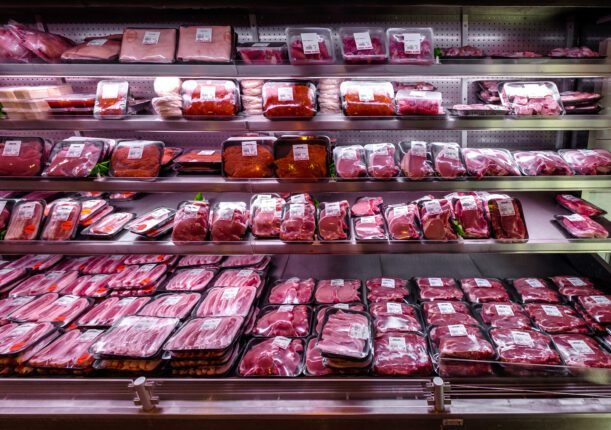-
Time to Reconsider Rationing?
November 18, 2024 By Oskar Lindgren
As public policymakers and NGO advocates around the world meet in Baku for COP29, the urgency of the climate crisis grows ever more pressing. Yet hopes that the targets and commitments will lead to meaningful policy action have contended with persistent national and global inaction on climate change mitigation and adaptation.
Global headlines from Spain’s Valencia region and US states such as Florida and North Carolina call attention to the plight of vulnerable people already experiencing severe and sometimes deadly consequences of this inertia. Given the growing gravity of the situation, perhaps it may be time to consider new ideas and policy options—including government efforts to limit the amount of goods or services that people can buy.
These government limits on resource consumption via the establishment of caps and allocation of equal but limited shares to individuals is popularly known as “rationing.” In our own moment, it is a strategy that has proven effective in curtailing overfishing and ensuring fair distribution of water and electricity during shortages.
In theory, rationing also could be applied to compel reductions in personal carbon emissions by limiting the consumption of climate-harmful goods and activities such as meat, petrol and flight travels. Digital tracking might track people’s consumption levels to reduce friction.
Yet while rationing offers a clear strategy to reduce personal climate impacts, it may be perceived as an overreach into daily life and provoke public opposition. So it seems essential to gauge how citizens might respond. In a recently published study in Humanities & Social Sciences Communications, I set out with other researchers to find answers.
We asked almost 9000 people in Brazil, Germany, India, South Africa and the United States about their attitudes to rationing and taxation of fossil fuels and high climate-impact foods (e.g. meat). What we discovered was somewhat surprising. People we surveyed held equally positive attitudes to both fossil fuel rationing and fossil fuel taxation.
For instance, nearly 40% of respondents in our sample indicated they are willing to accept fossil fuel rationing. Rationing meat consumption obtained a 33% approval, which was lower than the 44% of those polled who say they would accept meat taxation. Interestingly, respondents in India and South Africa had more positive attitudes to both rationing proposals when compared to respondents in the US and Germany.
As concerns about climate policy backlash materialize and grow in academia and media (as well as among some policymakers), our findings seem surprising—and perhaps encouraging. It is certainly evidence that rationing merits more serious political and academic attention.
Past Lessons Can Chart a More Effective and Equitable Future
History suggests strongly that governments facing crises (including wars) often turn to restrictive regulations, including the frequent use of rationing. While the challenges posed by the climate crisis or biodiversity decline are not directly comparable to wartime, there are notable similarities.
In both war and in our accelerating environmental crises, time is critical. Delayed action risks exacerbating negative consequences. Rapid behavioral shifts are needed on many fronts, including at the level of individuals’ consumption. War and environmental crises also produce scarcity in essential resources such as food and energy, which significantly impacts human welfare and wellbeing.
Effectiveness is the strongest argument in favor of rationing. Setting an absolute upper limit on certain types of consumption will guarantee emissions reductions, as long as the targeted goods or services have a higher carbon content than other available alternatives. Compared to taxes, for instance, political science research tells us that command-and-control instruments have a higher degree of certainty to achieve a given policy target.
Rationing also can lead to the more equitable distribution of a regulated good or service. Unlike taxes, which allocate resources based on peoples’ ability to pay, rationing distributes resources based on need that meets minimum levels necessary for each individual or family/household.
The concept of a “just transition” is foundational—both in research and in civil society approaches to the challenge. So if equity and just distribution outcomes are important considerations in making climate policy, rationing may be worth considering because it provides policymakers with opportunities to target inequality and advance a just distribution of goods and services.
The burgeoning research literature on public opinion about climate policies suggests that a perceived fairness is critical for public acceptance. For example, people often dislike carbon taxation due to its financial impacts on low-income individuals and households. In contrast, a rationing scheme that provides equal allowances to all individuals could avoid such regressive outcomes, as well as the perceptions of unfairness that accompany them.
Policy Instrument Choice: Beyond Good and Evil
Despite good reasons to consider rationing, the concept is controversial. Many existing firms will strongly oppose it because the strategy would limit their revenue streams. Concerns about the impacts of such schemes on national economies and competitiveness are both expected and justified. Rationing also expands government authority into areas typically viewed as private (such as food or transportation choices), raising important questions about state intervention and legitimacy.
Such critiques make it imperative that scholars, advocates, policymakers and the public should consider, explore, and debate all of the merits and demerits of rationing policy options. Yet framing may be an essential part of this discussion.
Twenty years ago, political scientist Michael Howlett criticized scholars of policy instrument choices for offering overly simplistic policy recommendations in which instruments were seen as either “good or evil”. Today’s climate and environmental policy scholars might be questioned in much the same way for a tendency to favor price-based policies as the default solution and dismiss traditional regulations as inherently ineffective. Such dichotomies are neither helpful nor reflective of good science or effective policymaking.
Some will disagree with the arguments raised here. They will argue that rationing is a blunt instrument best reserved for times when all other options are inconceivable and inadequate. Yet the point of our research is not to suggest the superiority of rationing over other policies in all places and times. Rather, we want to pose the question of whether rationing has qualities that might make it a viable instrument for addressing the climate and inequality crises—as well as gauge potential reservoirs of public support.
Perhaps it is time to consider rationing as a legitimate part of the effective and equitable solutions we need to tackle the challenges we all face.
Oskar Lindgren is a PhD student at the Climate Change Leadership program at Uppsala University in Sweden. His research focuses on public opinion and design of climate policy, with an emphasis on stringent policy instruments that seek to reduce consumption-based emissions.
Sources: Humanities & Social Sciences Communications; Policy and Society
Photo credit: Display with different types of prepacked meat in a supermarket, courtesy of www.hollandfoto.net/shutterstock.com.
 A Publication of the Stimson Center.
A Publication of the Stimson Center.








